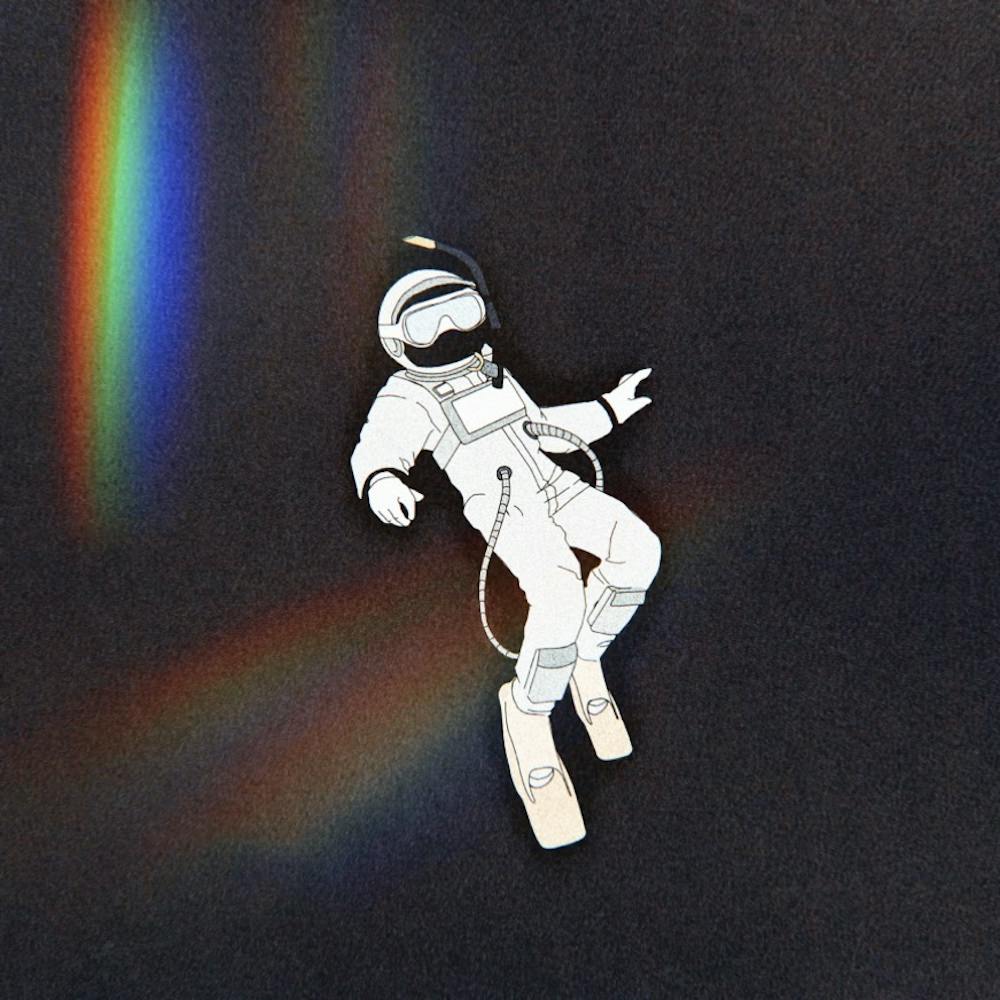Adin Yager — 19-year-old producer and first-year College student — is steadily making his way in the lo-fi genre under the alias “skyswimming.” At the time of this article’s creation, Yager is at a staggering 80,231 monthly listeners on Spotify and 199,200 plays on Apple music, solidifying him as an up-and-coming artist to look out for. Yager creates and mixes beats for his audience, hoping to achieve even greater heights in the future.
But he had to start somewhere.
“My family is very musical," Yager said. "One of my grandparents is a cantor at a synagogue, my other grandpa is a professional pianist [and] my dad is a really talented guitarist and pianist."
Recalling his humble beginnings, Yager remembers his family’s influence and their inadvertent push toward his own fluency in musical instruments.
"From a young age, I took piano lessons at 5, I took drums at 8, I took guitar at 12 and taught myself ukulele," Yager said. "I loved music, but I didn’t really find a home with any instrument, so when I found out that I could do production, I was so interested."
Yager did not stop there. After doing hours of research and watching endless videos on producing, he found a popular beat-making app called Auxy and made it his home.
“It was a really streamlined, easy and mobile way to produce music," Yager said. "I could produce music from anywhere, in school, in a car. [If] I had earbuds, I was good to go.”
Moving closer to professional music production, Yager discovered the platform SoundCloud and the many connections it fostered with other budding artists. After becoming increasingly acquainted with the world of music over the years, Yager knew he wanted to get serious.
When the pandemic hit and soon altered everyone’s lives, for Yager, it meant the perfect opportunity to create. With hours of newfound free time on his hands, Yager took to his computer to immerse himself in the dynamic terrain of music production and release.
“As soon as the pandemic hit, I was like, ‘Holy s—t. I have time. What am I gonna do?'" Yager said. "Music.”
Late March brought Yager’s real plunge into production. He spent 10 to 15 hours almost every day tinkering with various beats and melodies.
“I would just sit in my room all day, and my mom would get so mad at me because I wouldn’t come down for any meals,” Yager said.
From there, his potential skyrocketed. Release after release cemented Yager’s growth in the community, and his outreach to other artists also gave him the necessary know-how to succeed amongst the competition.
“I made some social media accounts, DMed some really famous lo-fi artists and my idol [Kupla] DMed me back within a day,” Yager said. “He took the time to answer all of my questions, listened to some of my music, gave me advice on what to do on marketing and labels and how to get involved.”
For Yager, the invention of “skyswimming” and generating song after song was only the first step. Understanding the business side of the music industry became the next big hurdle to overcome. One piece of the music industry Yager mentioned should be discussed more often is the knowledge of payment and how artists get compensated for their production.
“I know a ton of artists who aren’t getting paid everything that they’re owed because they didn’t know about [the business side] going into [the industry],” Yager said.
The fair treatment of musicians by the industry is extremely important to Yager, and he remains passionate about disclosing vital information about the business to others.
“There are a lot of different parts of the music industry that are not very public,” Yager said. “In the future, it would be really cool to be able to compile information from people who are willing to share and make a website or platform for young producers or young artists to find.”
As for local influences, Yager feels that he has not really had a chance to test the waters quite yet. While he has had some experience in getting to know musicians in the Charlottesville area, such as Orion Faruque and Elie Bashkow, his ability to meet and collaborate with local artists has been limited over the past year. Luckily, the University offered Yager the possibility of greater production opportunities in the future through the Miller Arts Scholars Program.
“It’s looking like it’s going to be a lot of fun, and I’ll be able to meet a lot of good people to collaborate with artistically,” Yager said.
For those trying to follow in his footsteps, Yager gives the following heartfelt advice.
“Collaborate. Ask people. Don’t be afraid to message anybody or ask anybody for help. Watch YouTube videos, just learn as much as you can. Don’t be afraid to put yourself out there,” Yager said.
At the end of the day, music is completely intertwined with Yager’s identity and sense of individuality. From the days when he was making beats on his phone to his current climb to stardom, Yager has and always will be incredibly attached to his work.
“Everything my music is, is me,” Yager said.







